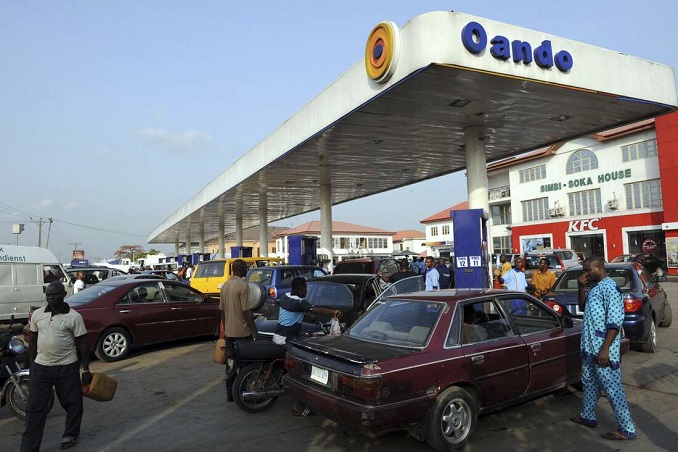![]() Nigeria – Nigeria’s state-run oil company announced that it has begun distributing petrol to service stations 24 hours a day to end a week-long scarcity that had caused traffic jams in key cities. The fuel crisis that began last week in Lagos, Nigeria’s commercial metropolis, and Abuja, the country’s administrative capital, has resulted in long lines and few petrol outlets supplying the product.
Nigeria – Nigeria’s state-run oil company announced that it has begun distributing petrol to service stations 24 hours a day to end a week-long scarcity that had caused traffic jams in key cities. The fuel crisis that began last week in Lagos, Nigeria’s commercial metropolis, and Abuja, the country’s administrative capital, has resulted in long lines and few petrol outlets supplying the product.
In numerous locations, transportation fares have increased, reducing services and forcing some residents and workers to walk considerable distances to reach their destinations. Because the public power supply in Nigeria is inconsistent and prone to blackouts, most families rely on fuel and diesel to power their generators. The crisis, according to the state-run Nigerian National Petroleum Corporation (NNPC), is due to the importation of contaminated gasoline into the country by four oil marketers.
The business stated in a statement late Tuesday that it has started taking steps, including 24-hour deliveries to service stations. “In order to expedite delivery across the country, we’ve started operating our depots and retail shops 24 hours a day.” People who sell oil, run depots, and run service stations have been told by the Nigerian National Petroleum Corporation to start filling and dispensing 24 hours a day, seven days a week at some of their approved outlets.
Related Posts
The NNPC stated that it had sufficient stock to end the deficit and that additional supplies would arrive by the end of February. “NNPC now possesses over one billion litres of approved PMS (petrol) supply that is safe for usage in automobiles and machinery,” the firm stated. “Over 2.3 billion litres of PMS (petrol) are slated for delivery between now and February 2022 as part of NNPC’s strategic restocking, restoring sufficiency levels above the national target of 30 days.” It claimed a monitoring team comprised of security agents had been formed to ensure the seamless distribution of petrol around the country.
The company urged Nigerians not to panic buy, claiming that their actions would restore normalcy in just a few days. Nigeria, Africa’s largest crude producer, relies on petroleum imports to meet local demand because its four refineries are either shut down or running at a fraction of their capacity. In Nigeria, petrol is sold at a discount to the market price as part of efforts to make it more affordable, but the IMF and the World Bank have encouraged the government to end the so-called fuel subsidy scheme in order to free up resources for development.

